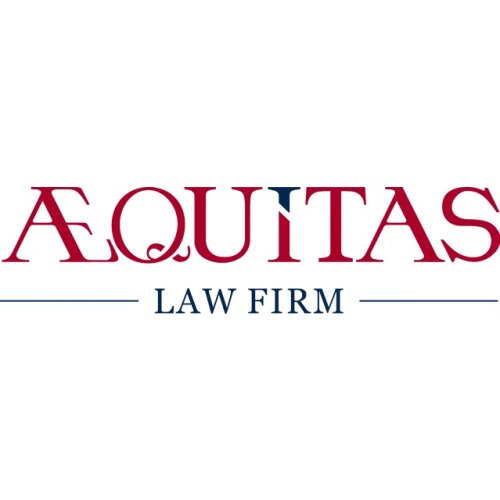Best Corporate & Commercial Lawyers in Kazakhstan
Share your needs with us, get contacted by law firms.
Free. Takes 2 min.
Or refine your search by selecting a city:
List of the best lawyers in Kazakhstan
About Corporate & Commercial Law in Kazakhstan
Corporate and commercial law in Kazakhstan refers to the body of laws regulating how businesses are established, managed, and dissolved, as well as the rules that govern commercial transactions, contracts, mergers and acquisitions, and foreign investments. After gaining independence in 1991, Kazakhstan has actively reformed its legal system, adopting modern corporate legislation to attract investment and foster a favorable business environment. The central legislation includes the Civil Code, the Law on Joint Stock Companies, the Law on Limited and Additional Liability Partnerships, and various regulations focused on business activities, competition, finance, and taxation.
Why You May Need a Lawyer
Navigating the corporate and commercial legal landscape in Kazakhstan can be challenging due to complex regulations, frequent legislative updates, and local business customs. Legal assistance may be needed in many situations, including:
- Establishing or registering a new business, whether as a local or foreign entity
- Drafting, reviewing, and negotiating commercial contracts
- Structuring mergers, acquisitions, or company restructurings
- Ensuring regulatory compliance with Kazakhstani authorities
- Resolving shareholder disputes or partnership issues
- Protecting intellectual property or trade secrets
- Addressing employment and labor law matters within corporate settings
- Managing cross-border business transactions and foreign investment formalities
- Dealing with bankruptcy, insolvency, or company liquidations
- Handling competition and antitrust compliance
Local Laws Overview
Kazakhstan’s legal system is rooted in civil law traditions. For corporate and commercial affairs, some key aspects include:
- Business Structures: The most common forms for companies are Limited Liability Partnerships (LLPs) and Joint Stock Companies (JSCs). The process for registration and incorporation is detailed and regulated.
- Foreign Investment: Kazakhstan has favorable regimes for foreign investors, especially within the Astana International Financial Centre (AIFC), offering additional benefits and special legal frameworks based on English law for certain commercial matters.
- Corporate Governance: Companies must comply with specific governance standards, including rules about shareholder meetings, board structures, and disclosure.
- Commercial Contracts: The Civil Code governs contracts, and parties generally have broad freedom in drafting terms, as long as they do not contradict Kazakh law.
- Taxation: Corporate taxation is overseen by the Tax Code, with varying rates and obligations depending on business activity and location.
- Competition Law: The Law on Competition regulates anti-monopoly practices and is enforced by national authorities.
- Labor Law: Employment relationships in commercial entities must comply with the Labour Code, covering contracts, rights, and dispute resolution.
- Dispute Resolution: Commercial disputes may be resolved in national courts or through arbitration, with growing use of the AIFC Court and International Arbitration Centre for cross-border matters.
Frequently Asked Questions
What are the main types of business entities in Kazakhstan?
The most common business entities are Limited Liability Partnerships (LLPs) and Joint Stock Companies (JSCs). There are also branches and representative offices for foreign companies. Each has specific regulations regarding incorporation, governance, and liability.
Can a foreigner fully own a company in Kazakhstan?
Yes, foreign individuals or entities can own 100 percent of a business in most sectors, except for certain regulated industries such as land ownership or some parts of the energy sector where there may be restrictions.
What is the process for registering a company?
Business registration involves choosing the company type, preparing incorporation documents, submitting applications to the Ministry of Justice or the local authority, and obtaining a business identification number and tax registration. Timing and requirements may vary by business type.
Are there any government incentives for foreign investors?
Kazakhstan provides several incentives for foreign investors, especially within certain economic zones and the AIFC, including tax preferences, simplified administrative procedures, and protection guarantees for investments.
How are commercial contracts governed and enforced?
Commercial contracts are governed primarily by the Civil Code. Parties can set most terms freely, but contracts must comply with mandatory legal requirements. Disputes can be resolved in the courts or through arbitration.
What are the main corporate governance requirements?
Corporate governance standards depend on company type. Key requirements involve management structures, proper conduct of general meetings, recordkeeping, and transparent decision making by directors and shareholders.
How do mergers and acquisitions work in Kazakhstan?
Mergers and acquisitions are regulated by several laws including antitrust rules. Legal due diligence and regulatory approvals from anti-monopoly authorities may be required, particularly for deals above certain financial thresholds.
What is the tax rate for companies?
The standard corporate income tax rate is 20 percent. Specific activities or zones, such as small and medium enterprises or AIFC members, may benefit from reduced rates or exemptions.
How are shareholder disputes resolved?
Disputes between shareholders may be settled under the terms of the corporate charter, by negotiation, or in court. Alternative dispute resolution methods, such as arbitration, are increasingly used, especially for foreign investors.
What legal protections exist for intellectual property?
Kazakhstan has intellectual property laws protecting copyrights, trademarks, and patents. Registration of IP is recommended for legal protection, and enforcement is available through the courts for infringements.
Additional Resources
If you need information or assistance in corporate and commercial matters, consider the following resources:
- Ministry of Justice of the Republic of Kazakhstan - handles business registrations, corporate records, and legal information
- Astana International Financial Centre (AIFC) - offers a business-friendly legal environment and court services for commercial matters, especially for foreign investors
- Committee for Regulation of Natural Monopolies and Protection of Competition - oversees anti-monopoly and competition issues
- Kazakh Chamber of Commerce - provides business support and advisory services
- State Revenue Committee under the Ministry of Finance - responsible for tax administration and guidance
- Local bar associations and legal support foundations - provide access to qualified lawyers and legal aid in corporate matters
Next Steps
If you are seeking legal advice or assistance in the field of corporate and commercial law in Kazakhstan, start by identifying your specific legal need. Collect all relevant documents and information related to your issue, whether about business formation, contracts, or disputes.
It is advisable to consult with a qualified lawyer who specializes in corporate and commercial matters and is familiar with the local legal system. Look for professionals with relevant experience, strong references, and language proficiency if you are a foreign investor. Contact local law firms, consult professional directories, or reach out to business support organizations like the Chamber of Commerce for referrals. Early legal guidance can help avoid potential pitfalls and ensure that your business activities or transactions are fully compliant with Kazakhstan's legal requirements.
Lawzana helps you find the best lawyers and law firms in Kazakhstan through a curated and pre-screened list of qualified legal professionals. Our platform offers rankings and detailed profiles of attorneys and law firms, allowing you to compare based on practice areas, including Corporate & Commercial, experience, and client feedback.
Each profile includes a description of the firm's areas of practice, client reviews, team members and partners, year of establishment, spoken languages, office locations, contact information, social media presence, and any published articles or resources. Most firms on our platform speak English and are experienced in both local and international legal matters.
Get a quote from top-rated law firms in Kazakhstan — quickly, securely, and without unnecessary hassle.
Disclaimer:
The information provided on this page is for general informational purposes only and does not constitute legal advice. While we strive to ensure the accuracy and relevance of the content, legal information may change over time, and interpretations of the law can vary. You should always consult with a qualified legal professional for advice specific to your situation.
We disclaim all liability for actions taken or not taken based on the content of this page. If you believe any information is incorrect or outdated, please contact us, and we will review and update it where appropriate.
Browse corporate & commercial law firms by service in Kazakhstan
Kazakhstan Attorneys in related practice areas.
Browse corporate & commercial law firms by city in Kazakhstan
Refine your search by selecting a city.













